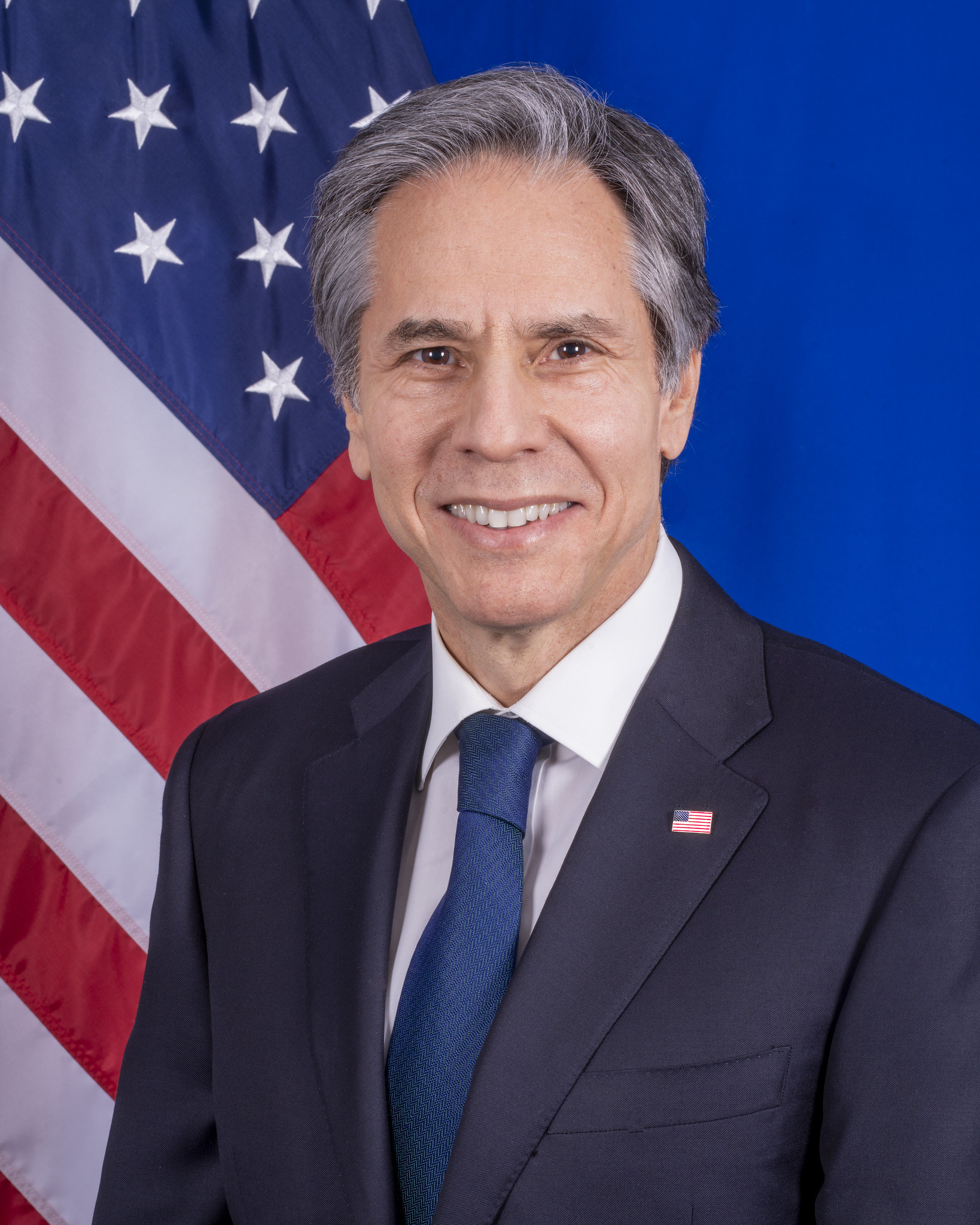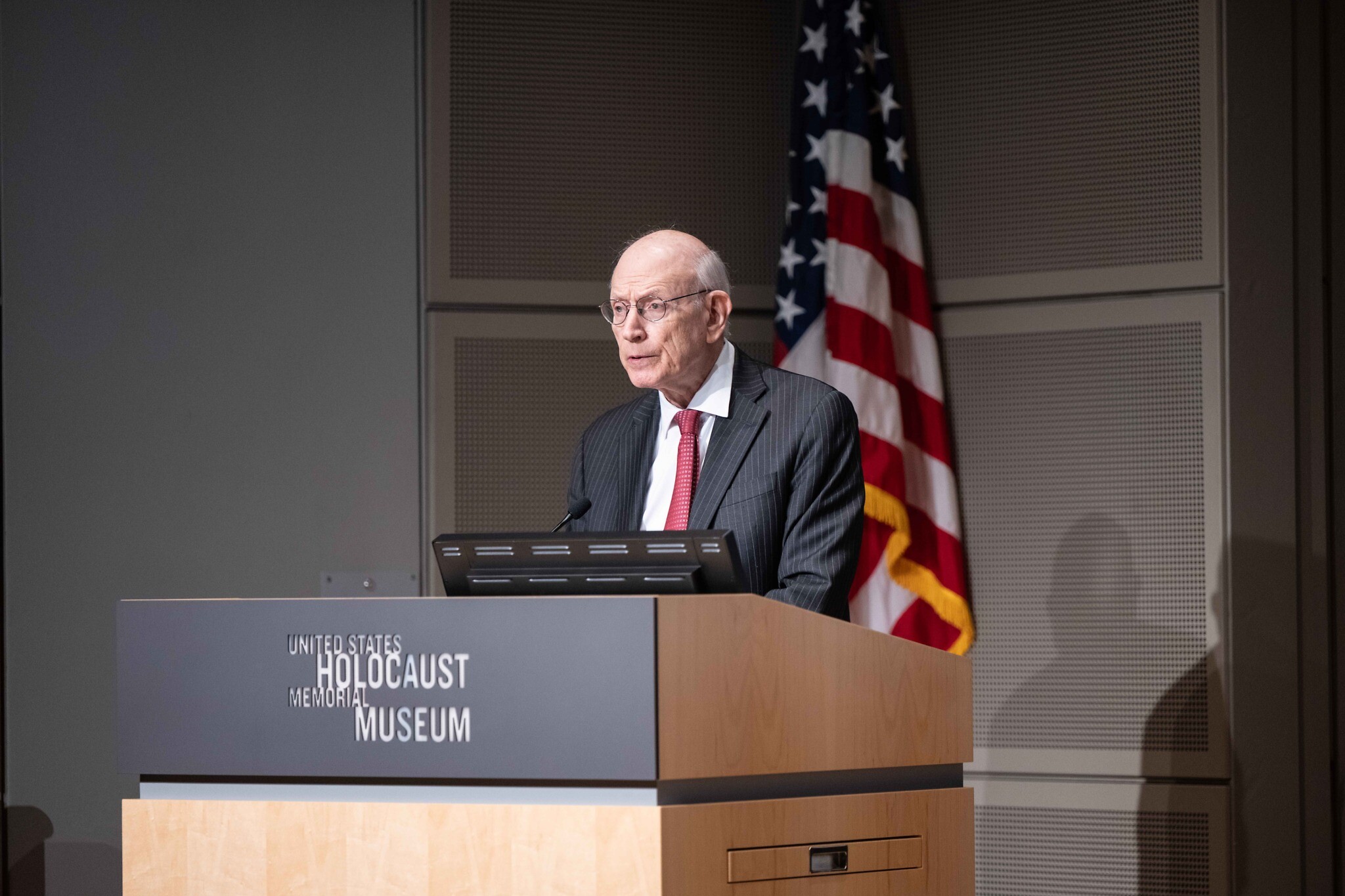Britain’s special envoy for post-Holocaust issues, Lord Pickles, has made an impassioned plea for countries to adopt mediation rather than litigation when claimants try to recover artworks looted by the Nazis.
Lord Pickles was speaking at an event jointly convened in Washington DC by the World Jewish Restitution Organisation (WJRO), and the American State Department, to mark 25 years since the establishment of the Washington Principles concerning looted art.
Nazi appropriation of art from Jews, both individuals and communal institutions, was described as “the greatest theft in history” by WJRO president Gideon Taylor. This week’s conference, held at the US Holocaust Memorial Museum, was held to review what progress had been made in the last quarter century, and to announce the publication of a series of “Best Practices”, which countries are encouraged to adopt.
Get The Jewish News Daily Edition by email and never miss our top stories
Free Sign Up
Since 1998, just five countries — including Britain — have set up national claims commissions for survivors or their heirs to recover looted art. America, for a variety of reasons, including the fact that almost all its museums are private rather than public, is not among them, obliging potential claimants to embark on costly legal applications.
Lord Pickles, stock imagery
Lord Pickles, who followed Israel’s ambassador to the US, Michael Herzog, opened his remarks by saying it was “a wonderful thing that Israel is standing up for liberal democracy, and we wish Israel well”.
Noting that both Israel and Switzerland were now in the process of setting up national claims commissions to join the existing five countries, Lord Pickles said such commissions were “beacons of transparency” when it came to dealing with restitution claims. He said: “The last 25 years have seen progress — but the progress has been variable. I think our approach to the next 25 years should be to recognise that bright sunshine is the best medicine. The more transparent we are, the easier it will be to deal with the problem”.
Claimants, he said, “and the public in general, have a right to know about the existence and whereabouts of all items in public collections”. Research was vital, he said, as the first step in knowing what museums hold. “A full public list, backed up by provenance research, should be available to the public. It’s pointless to talk about moving forward, if we don’t know what is in collections.”
Smiling, Lord Pickles said that while he was aware that every American citizen had the right to legal redress, “there is another way. Mediation does work. It’s not a happy situation, 80 years on, for families whose lives were destroyed by the Nazis and their collaborators, that they have to pay to get their property back. Why should families who had their art stolen have to go to court to get their art returned? This practice exacerbates their loss.”

Secretary Blinken.
To date, 22 countries have endorsed the new Best Practices guidelines, and it was a sign of how seriously the American administration takes the issue that the US Secretary of State, Antony Blinken, broke into his hectic Israel-Gaza schedule to address the conference and encourage more countries to join the endorsement.
Blinken has a very personal connection with the Holocaust and Nazi looting. His late stepfather was the influential survivor, lawyer and writer, Samuel Pisar. As Blinken recalled in his remarks: “Sam… was one of the victims of this [Nazi] dispossession. After the Nazis forced his family into the Bialystok ghetto, they killed Sam’s father. Soon after, Nazi forces herded the rest of the family — Sam, his mother, and his little sister Frieda – to the train station. There, a stormtrooper approached Sam’s mother and demanded she hand over her engagement ring. As soon as she wrested it from her finger, the soldiers loaded her and Frieda onto a train to Treblinka… and to their deaths”.
The Secretary of State recalled: “The Nazis seized and exploited Jewish businesses, bank accounts, and property – including art and cultural property – as a part of a systematic campaign to physically eradicate all vestiges of Jewish life.
“The Nazis plundered museums, galleries, homes, and Jewish communities. They forced Jewish collectors to sell off their artwork at a fraction of their worth – or just stole it. Banned and auctioned off so-called “degenerate art” produced by Jews and those associated with being Jewish. Robbed Jewish families of their possessions as they marched them off to ghettos and camps”.

WJRO president Gideon Taylor
Blinken said that the Washington Principles, endorsed by 44 countries, had done much to help the restitution of thousands of works of art in the last 25 years. But, he said, while “those steps represent real progress, they are not nearly enough.
“Of the millions of works of art and cultural property stolen by the Nazis, countless objects still have not been returned to their owners. Today, too many governments, museums, dealers, galleries, and individuals still resist restitution efforts… while heirs confront staggering legal and financial barriers as they go up against opponents whose resources vastly outmatch their own”.
Along with the publication of the “Best Practices”, the WJRO has issued a global report on the implementation of art restitution in the 25 years since the Washington Principles. The overall conclusion was that there was “significant progress, but many countries are still lagging”. Twenty-four countries are named as having made little or no progress — and they include nations such as Australia, Denmark, Spain, and, inevitably, Russia and Ukraine.
Gideon Taylor, president of the WJRO, said: “This report underscores the critical need for advancement in art and cultural property restitution. Restitution from public bodies or private individuals is not just about returning what was taken; it’s about reconnecting families and communities with their heritage. We urge other countries, as well as museums, auction houses, dealers and private possessors to join us in ensuring justice and that rightful owners and their heirs are reunited with their cultural treasures.”

Ambassador Stuart Eizenstat
Other participants in this week’s conference included Stuart Eizenstat, the US Secretary of State’s special adviser on Holocaust issues, and Ellen Germain, special envoy for Holocaust issues at the US Department of State. Dr Wesley Fisher, director of research at WJRO, moderated a panel discussion on the future of art restitution.
Among those welcoming the global report was New York-based Sharon Glattstein Singer, whose family comes from Edelény, Hungary. She said: “My grandfather’s shofar was hidden in the attic of our home in Hungary, before my family was sent to various concentration and labour camps during the Holocaust. It was last seen in the town’s library. For us, the shofar represents more than just an object; it embodies our family’s history and connection to our heritage. It is imperative that Hungary honours its moral obligation and facilitates the return of this cherished artefact.”









